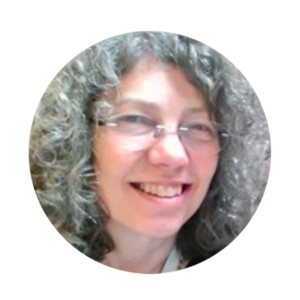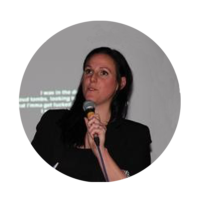Bookings are closed.
This online conference will explore digital safety and mental health for children and young people, give you an understanding of the issues related to digital safety in the UK context, and provide key tips, advice and recommendations. Plus we will be offering the opportunity for practitioners to share their dilemmas, and solutions, from their own practices.
Key takeaways
About the event
Who should attend
Prices and booking
Programme
About the speakers
Key takeaways
- Increasing awareness of safety related use of digital technology
- Understand and support children’s rights in a digital age
- Recognise the roles and responsibilities of parents in negotiating their children’s digital lives
About the day
Children’s lives are increasingly integrated with the digital world. Parents and professionals are challenged to keep up with the unprecedented rates of digital innovation and can struggle to help children and young people manage the associated risks of the developing digital world.
Keynote speaker Professor Sonia Livingstone will set the scene by explaining the digital landscape with regard to safety for children and young people. By using examples of her extensive evidence-based research Professor Livingstone will exploring what this means to parent during this time of rapid digital innovation.
This will be followed by three short practice-based talks from local professionals, from the Oxford and Reading area, who work in mental health services, and the local authority. These will include case studies and reflect on the dilemmas they encounter in their own services, and importantly the effective interventions and solutions used.
We are excited to also be offering a facilitated breakout session. This gives delegates the opportunity to share their own experiences and generate questions for the panel discussion. Each group will have a member of the ACAMH Reading and Oxford as a facilitator, and they will collect and co-ordinate the questions for the panel.
Who should attend
This session would have a broad appeal to those working with children & adolescents. In particular those working in CAMHS, Educational Psychologists, Occupational Therapists, Speech and Language Therapists, Psychologists, Psychiatrist, Paediatricians, and other mental health professionals. Additionally, it would also be relevant for Teachers, Social Workers, those working in the voluntary sector with a direct link to children and young people, plus parents.
Prices and booking
- Members £10
- Non-members £20
Prices also include exclusive access to all lectures for up to 28 days. Plus all delegates receive an electronic CPD certificate.
Remember ACAMH is a charity and any surplus made is reinvested back to the benefit of our members and the industry as a whole.
Programme
09.15 The room opens for a 9.30am start
09.30 Professor Sonia Livingstone – ‘Parenting for a digital future’
10.30 Dr. Matthew Lister – ‘Internet misuse in the CYP population: reflections and next steps’
10.45 Break
11:00 Kate Pike and Josie Gallop – ‘How our new Mental Health Support Team adapted to online support and delivery’
11.15 Dr Becky Inkster – ‘Young people’s mental health in a digital world: Using music to connect with hard-to-reach groups’
11.30 Breakout rooms. Facilitated by members of the committee.
12:00 Panel discussion
12.45 Close
About the speakers

Sonia Livingstone DPhil (Oxon), OBE, FBA, FBPS, FAcSS, FRSA, is a professor in the Department of Media and Communications at the London School of Economics and Political Science. Taking a comparative, critical and contextualised approach, her research examines how changing conditions of mediation reshape everyday practices and possibilities for action. She has published 20 books on media audiences, children and young people’s risks and opportunities, media literacy and rights in the digital environment, including “Parenting for a Digital Future: How hopes and fears about technology shape children’s lives” (OUP 2020). Since founding the EC-funded 33 country “EU Kids Online” research network, and Global Kids Online (with UNICEF Office of Research-Innocenti), she has advised the Council of Europe, European Commission, European Parliament, UN Committee on the Rights of the Child, OECD, ITU and UNICEF. She chaired LSE’s Truth, Trust and Technology Commission and is currently leading the Digital Futures Commission with the 5Rights Foundation. See www.sonialivingstone.net
About the talk on ‘Parenting for a digital future’:
When researching my book, “Parenting for a Digital Future,” I learned how parents feel stuck between opposing expectations – to limit their children’s digital engagement because of the problems of online risks and screen time, and to encourage it to ensure they don’t fall behind and stay competitive for the digital jobs of the future. This talk will reveal how parents manage these twin demands, and the particular issues that arise for children with vulnerabilities or living with disadvantage.

I am a neuroscientist, seeking innovative ways to improve our understanding and treatment of mental health in the digital age. I apply measured optimism when working across artificial intelligence-enabled mental healthcare, neuroscience, ethics and governance, as well as digital-, clinical-, and music-based interventions, social media, and public engagement, especially with young people and underrepresented groups. I provide cross-sectorial guidance and leadership on mental health innovations to numerous institutions and companies that span academia, technology, human rights, mental healthcare, and government. See www.beckyinkster.com

I am a consultant clinical psychologist and lead psychologist for the forensic CAMHS services in the Thames Valley. I have experience of working in forensic mental health settings for a number years, which includes assessment, intervention and supervision/training of others in health, social care and youth justice settings. I am also head of psychological therapies for Oxfordshire CAMHS.
Internet misuse within the CYP population is something that has been an interest for a long time as this has often been a feature of the clinical population that I have worked with. I have presented on this topic at the NOTA conference 2019 and recently started a service improvement project within services.

Josie Gallop is an Assistant Educational Psychologist for the Mental Health Support Team in West Berkshire which was one of the Trailblazer MHSTs. Josie delivers a range of evidence based interventions to children and young people in primary and secondary schools, and is involved in supporting the Senior EPs in the development of MHST procedures, particularly with regard to conducing evaluation of MHST work. Josie delivers training sessions for school staff, parents and children and young people, as part of the MHST’s role in supporting schools’ whole school approach.
About the talk on ‘How our new Mental Health Support Team adapted to online support and delivery’:
We officially launched our MHST to 27 schools in West Berkshire in January 2019 and then found ourselves facing lockdown and remote delivery 2 months later. We’ll explain about this rollercoaster ride, and some of the challenges that faced us, and the solutions we found.

Kate Pike is a Senior Educational Psychologist with 17 years’ experience and co-manages the Mental Health Support Team in West Berkshire which was one of the Trailblazer MHSTs. Kate is a Video Interaction Guidance supervisor and has a PGCert for Children and Young People’s Services (CBT/PT/EMHP/CWP). Kate is part of the team delivering Senior Mental Health Lead training for schools in West Berkshire and is trained to deliver the Sandwell Well-being Charter Mark to schools.
About the talk on ‘How our new Mental Health Support Team adapted to online support and delivery’:
We officially launched our MHST to 27 schools in West Berkshire in January 2019 and then found ourselves facing lockdown and remote delivery 2 months later. We’ll explain about this rollercoaster ride, and some of the challenges that faced us, and the solutions we found.

